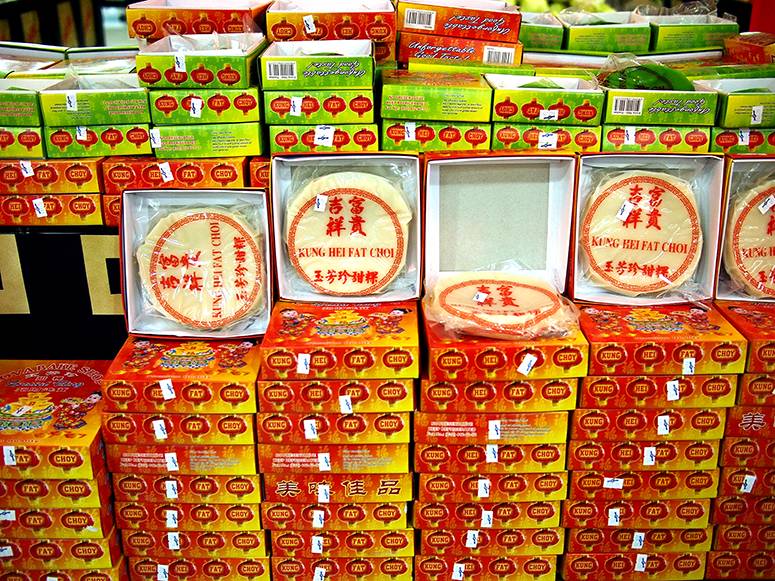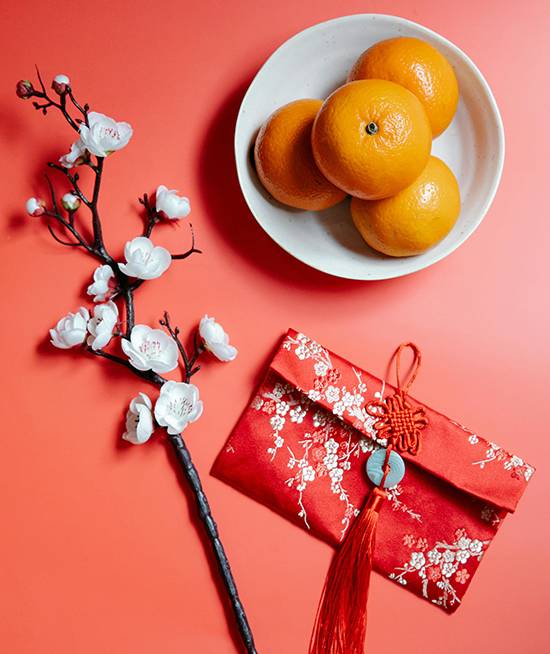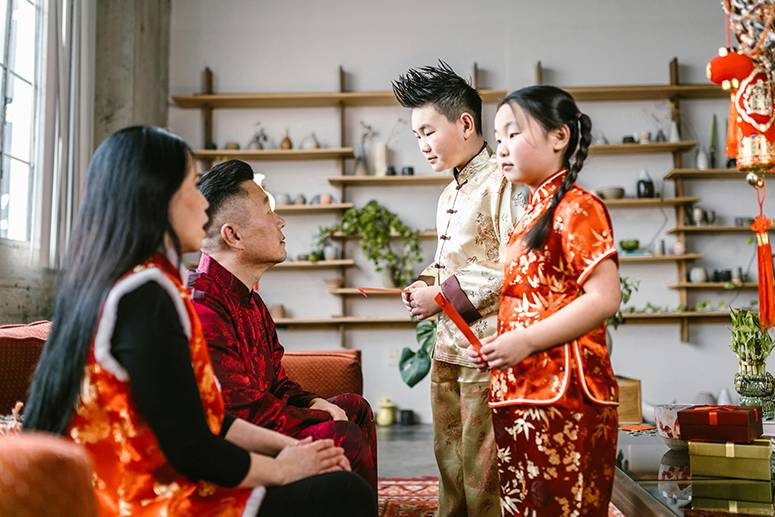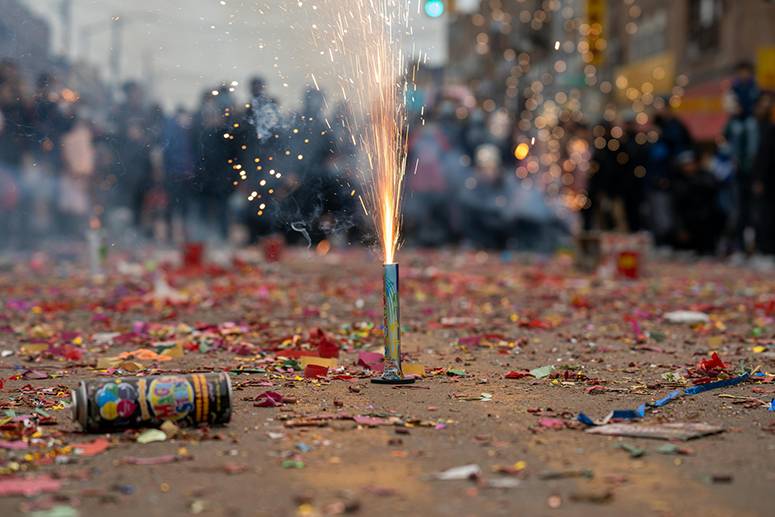Unlocking authentic Chinese New Year good luck: No trinkets, just traditions
As the Chinese Lunar New Year draws near, let’s sidestep the commercialized clutter—no fake amulets, no charlatans in stereotypical robes, no tacky trinkets, and definitely no wacky illogical superstitions which bastardize otherwise sublime Chinese culture. Instead, let us explore authentic traditions that spark joy, harmony, and genuine good fortune.
A journalist from a major TV network recently asked me if eating chicken feet really ensures good marriage and luck in Chinese belief? I said sorry, I’ve never heard of that; though I admit chicken feet are among my favorite dimsum dishes.
If luck came with chicken feet, I’d be the happiest and luckiest guy alive! It’s as cute and bizarre as a Western superstition that a rabbit’s foot guarantees fortune. Speaking of feet, Chinese-popularized foot massages bring relief to tired bodies—but there’s no evidence they bring luck either.
The sweet unity of tikoy

Tikoy, the sticky rice cake (from Hokkien or south Fujian province language words “ti” for sweet and “ke” for cake), is more than a dessert—it symbolizes unity. Its round shape reflects completeness, and its sticky texture signifies the binding of family ties. Whether steamed, fried, or wrapped like lumpiang shanghai, tikoy reminds us that life is sweeter when shared with loved ones.
Angpao: Blessings in red
The red envelope, angpao in Hokkien (hongbao in Mandarin), is not just cash; it’s a wish for prosperity. Crisp bills are preferred, symbolizing fresh starts. Unlike ampaw (a hollow pastry turned Filipino slang for “worthless”), angpao is a rich tradition rooted in goodwill.

Family first, always
Chinese New Year is a grand family reunion. Relatives gather around festive tables, sharing laughter, stories, and elaborate feasts. Visiting elders and offering well wishes reinforce Confucian values of respect and filial piety.
Incidentally, I believe the Filipino gesture of mano po isn’t an original Chinese custom but one that we local Chinese have happily adopted— much like the late Mother Lily Yu Monteverde did by turning Mano Po into a movie franchise.

Clean—but don’t sweep luck away
Houses are cleaned before Chinese New Year to discard bad vibes, but on the day itself, no brooms or mops are allowed. Sweeping during festivities risks brushing away newly arrived fortune.
Settle debts, wear red
Paying off debts before the New Year is a must to avoid starting the year on a bad note. As for attire, red reigns supreme—symbolizing joy, luck, and prosperity. By the way, I read some charlatans claiming red-colored underwear is lucky; I think that’s fake and weird.
Ancient Chinese invented gunpowder for celebrations, which unfortunately others brought elsewhere and utilized for war. Fireworks light up the skies not just for spectacle but to scare away evil spirits. Pair this with heartfelt prayers, thanking God for blessings and asking for health, wealth, and happiness. (Reminder: Use legal fireworks. Accidental hospital visits aren’t festive!)
Fireworks, prayers, and the god of wealth

We Chinese even have a God of Wealth—Chai Shen—revered in Taoism as the harbinger of prosperity. You’ll find his towering statue at Gloriamaris Restaurant in Greenhills, San Juan, where devotees can actually stop to pray for financial blessings.
Symbolic foods for fortune
What you eat during New Year matters. Fish represents surplus (the Mandarin word for fish, yu, sounds like “surplus”). Dumplings resemble ancient Chinese gold ingots and symbolize wealth, while noodles signify longevity—never cut them! Mandarin oranges, the name of which in Chinese sounds like “luck” and “wealth,” are believed to bring good vibes.
Greetings of prosperity
The traditional greeting “Gongxi Fachai” in Mandarin or “Kiong Hee Huat Chay” in Hokkien means, “Congratulations, may you prosper!” Cantonese speakers say “Kung Hei Fat Choi!” Some may find the worldwide ethnic Chinese focus on wealth amusing, but this greeting honors diligence, resilience, and the rewards of hard work.
True good luck
Chinese New Year isn’t just about customs; it’s ultimately about values—unity, gratitude, and faith. Beyond tikoy and fireworks, true prosperity lies in nurturing family bonds, honoring elders, and trusting God’s guidance. As the great teacher Confucius taught, filial piety (xiao soon in Mandarin or hao soon in Hokkien) is the foundation of a fulfilling life.
So this Year of the Snake, skip the fake charms (except as décor) and embrace traditions with meaning. Pray, work hard, laugh with family, and enjoy a feast that reflects abundance.
Let’s rise above the negativity (and shamelessly corrupt politicians) to welcome a year brimming with hope and blessings.
Kiong Hee Huat Chay! May your year be as abundant in joy, health, and prosperity as tikoy and ang pao!


